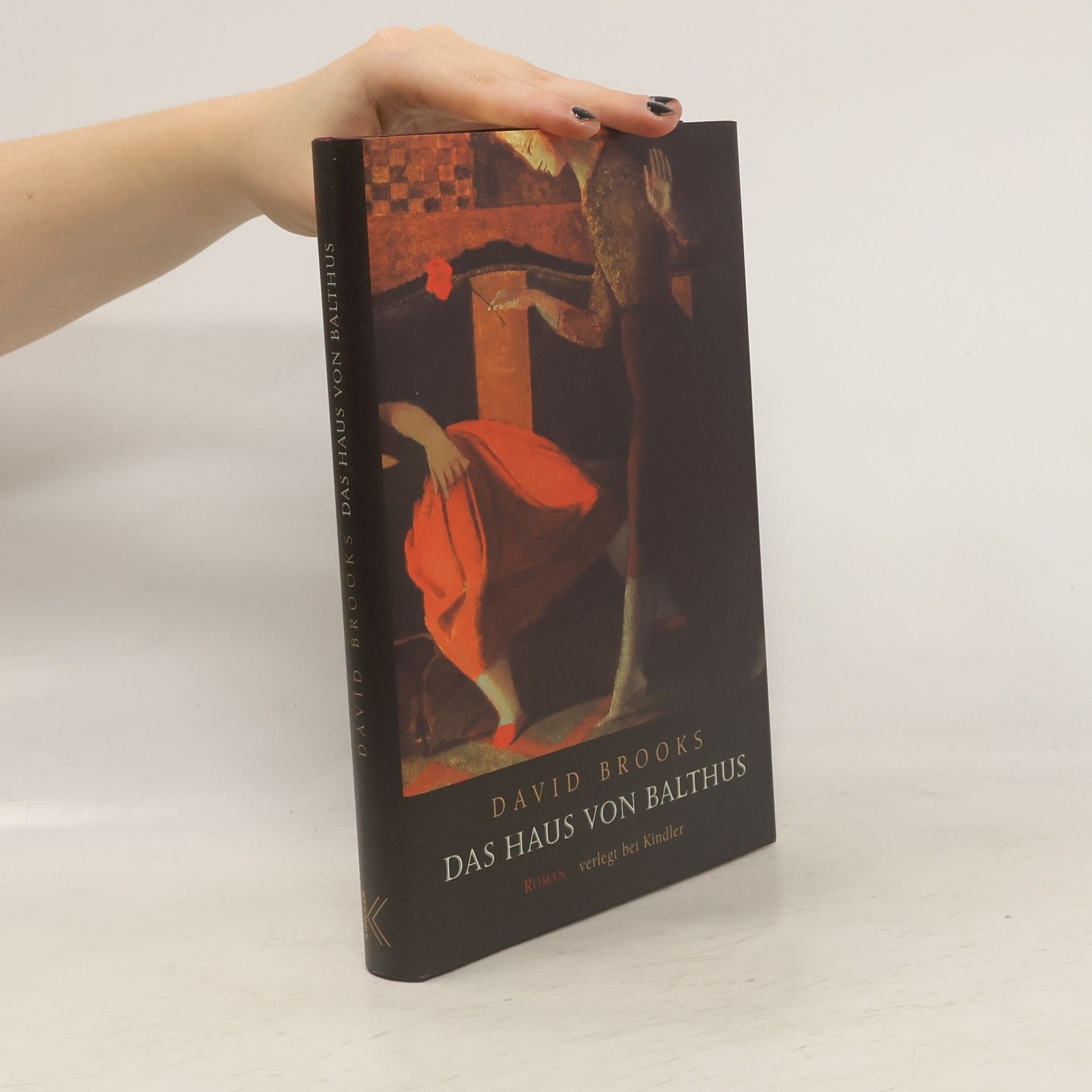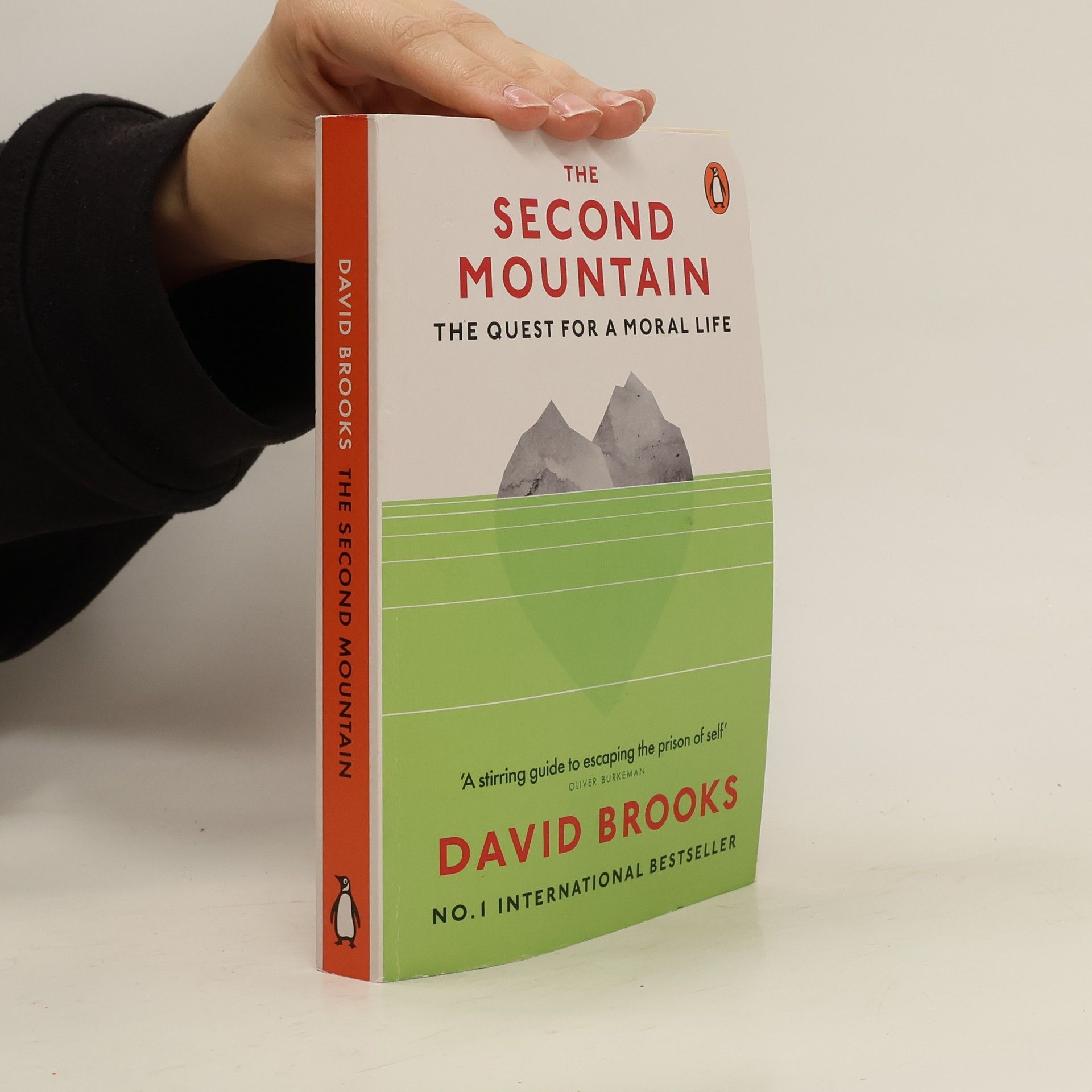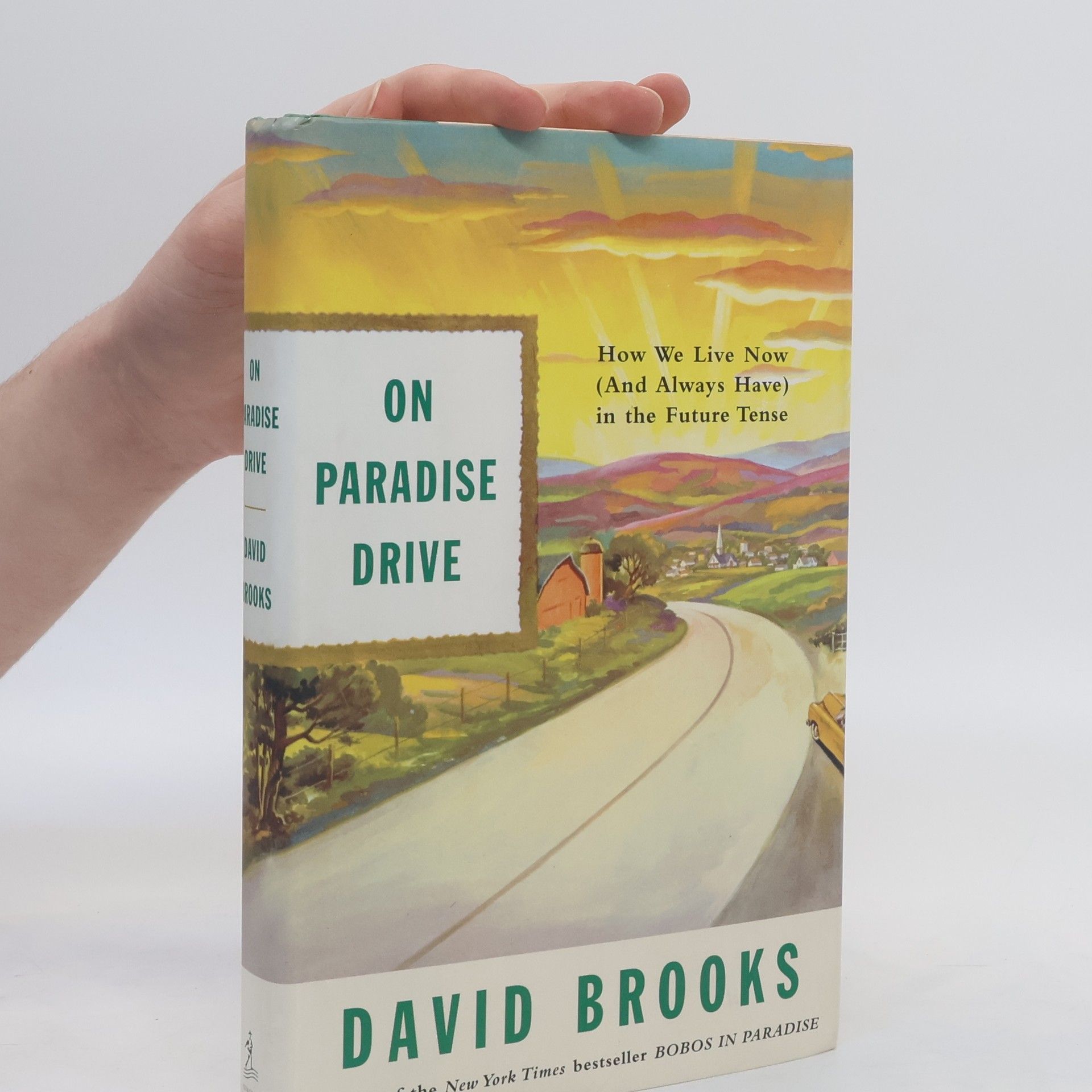Die verborgenen Quellen eines erfolgreichen Lebens Harold und Erica führen ein erfolgreiches, erfüllendes Leben. Obwohl sie beide unterschiedlich gute Startbedingungen hatten und auf ihrem Lebensweg auch mit Rückschlägen, Niederlagen und Krisen zurechtkommen müssen, scheinen sie letztlich den Schlüssel zu Glück und Zufriedenheit gefunden zu haben. Doch Harold und Erica sind keine realen Menschen – vielmehr zeigt David Brooks an diesen fiktiven Charakteren meisterhaft, was wir heute über die menschliche Natur wissen und wie sich unser Menschenbild in den letzten dreißig Jahren gewandelt hat. Basierend auf den Erkenntnissen der Biologie, Psychologie, Neurowissenschaften und Verhaltensforschung erklärt Brooks, wie stark unser Lebensweg von Gefühlen, Intuitionen, Beziehungen, von Verlangen und Veranlagung geprägt ist – warum wir also nicht etwa rationale Individuen sind, sondern soziale Tiere.
David Brooks Bücher






Die Bobos
- 294 Seiten
- 11 Lesestunden
„Bobos“, das ist der Name, den David Brooks der neuen Elite des Informationszeitalters gegeben hat. Der Lebensstil der Bobos führt zusammen, was bisher als unvereinbar galt: Reichtum und Rebellion, beruflicher Erfolg und eine nonkonformistische Haltung, das Denken der Hippies und der unternehmerische Geist der Yuppies. Der „bourgeoise Bohemien“ ist ein neuer Typus, der idealistisch lebt, einen sanften Materialismus pflegt, korrekt und kreativ zugleich ist und unser gesellschaftliches, kulturelles und politisches Leben zunehmend prägt. Brooks zeichnet ein witziges und genaues Bild von der Macht und den Marotten der neuen Oberschicht. „Bobos“, das ist der Name, den David Brooks der neuen Elite des Informationszeitalters gegeben hat. Der Lebensstil der Bobos führt zusammen, was bisher als unvereinbar galt: Reichtum und Rebellion, beruflicher Erfolg und eine nonkonformistische Haltung, das Denken der Hippies und der unternehmerische Geist der Yuppies. Der „bourgeoise Bohemien“ ist ein neuer Typus, der idealistisch lebt, einen sanften Materialismus pflegt, korrekt und kreativ zugleich ist und unser gesellschaftliches, kulturelles und politisches Leben zunehmend prägt. Brooks zeichnet ein witziges und genaues Bild von der Macht und den Marotten der neuen Oberschicht.
Animal Dreams
- 290 Seiten
- 11 Lesestunden
Through a series of insightful essays, the author delves into the complex relationship between humans and animals as portrayed in literature and culture. He explores diverse topics, including iconic works like 'The Man from Snowy River' and contemporary issues such as veganism and wildlife culling. With a keen focus on how these discussions reveal deeper societal attitudes, the author challenges readers to reflect on the implications of our interactions with other species and the necessary steps for progress in understanding these vital connections.
"'We need to organise politically to defend the weak, empower the many and prepare the ground for reversing the absurdities of capitalism.' - Yanis Varoufakis. 'Capitalism over the past twenty-five years has been an incredible moral good.' - David Brooks. The Munk debate on capitalism: There is a growing belief that the capitalist system no longer works. Inequality is rampant. The environment is being destroyed for profits. In some western nations, life expectancy is even falling. Political power is wielded by wealthy elites and big business, not the people. But for proponents of capitalism, it is the engine of progress, not just making all of us materially better off, but helping to address everything from women's rights to political freedoms. We seem to stand at a crossroads: do we need to fix the system as a matter of urgency, or would it be better to hold our nerve?'"-- Provided by publisher
The Road to Character
- 320 Seiten
- 12 Lesestunden
The No. 1 New York Times bestseller on the secret to leading a good life We live in a Big Me culture: universities and businesses alike reward goal-oriented superstars and those who self-promote are most likely to thrive. But what does this say about us? David Brooks argues that our hunger for wealth and status is eroding our ability to create meaningful inner lives. To show us how to live better, he looks at people whose sense of humility was fundamental to their success. What they all understood was a simple but counterintuitive truth: in order to fulfil yourself, you must learn how to forget yourself.
This will make you smarter
- 448 Seiten
- 16 Lesestunden
This title includes contributions from Richard Dawkins, Stephen Pinker, Daniel Dennett and Brian Eno among many others. It offers ideas, strategies and arguments that will help all of us understand our world and its future.
The second mountain: the quest for a moral life
- 384 Seiten
- 14 Lesestunden
Are you on your first or second mountain? Is life about yourself or others? Are you self-improving or committed? Mainstream culture teaches us that human beings pursue our self-interest - money, power, fame. But at some point in our life we might discover that we're not interested in what other people tell us to want. We want to want the things that are truly worthy of wanting. At this point, you have moved to your second mountain. What does it mean to elevate your desires, to look beyond consumption and find a moral cause? To forget about independence and discover dependence - to be utterly enmeshed in a web of warm relationships? What does it mean to want intimacy, devotion, responsibility and commitment above individual freedom? In The Second Mountain David Brooks explores the meaning and possibilities that scaling a second mountain offer us, and the four commitments that most commonly move us there- family, vocation, philosophy and community. Inspiring, personal and full of joy, this is the start of a deeper journey into the world.
The Road to Character. Charakter, englische Ausgabe
- 300 Seiten
- 11 Lesestunden
David Brooks excels at making complex social research accessible and engaging. His work presents a compelling narrative that encourages a return to self-restraint and humility in an age dominated by self-promotion. He emerges as a countercultural leader, inviting readers to explore the lives of figures like Frances Perkins and Saint Augustine while sharing his own reflections on their significance. The book is marked by a calm, fair, and humane voice, showcasing Brooks's moral and spiritual insights. His approach is original and thought-provoking, reminiscent of Malcolm Gladwell, as he synthesizes ideas from various thinkers to create a larger narrative. Brooks's introspective journey to combat his self-perceived shallowness leads him to literature, revealing wisdom often overlooked in contemporary social science. The book challenges readers who seek validation of their uniqueness, offering instead a thoughtful critique that is worth the time away from social media. Through powerful stories of individuals like Augustine and George Eliot, Brooks inspires a deeper understanding of character. His writing blends moral urgency with philosophical elegance, making it a clarion call for a more meaningful existence. Overall, the book serves as a vital exploration of personal morality in today's materialistic society, emphasizing the importance of humility and virtue.
A social critique of middle-class America notes the pervasiveness of barbecue grills, supermoms, suburban restaurant chains, and other elements, identifying the motivations that prompt many people to strive for fantasy-based goals.



